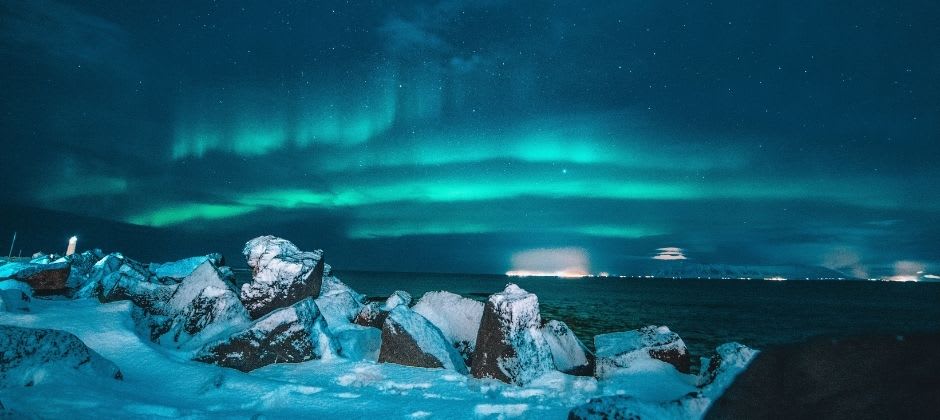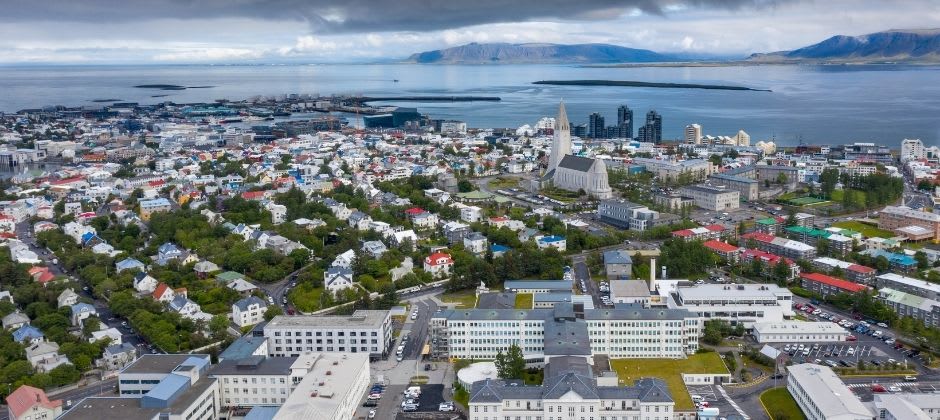Study in Iceland: Language & Culture
The official language of Iceland is Icelandic, a Nordic language. Icelandic is an ancient language that has changed very little over time. It also doesn’t use loanwords. Instead, new words are created from existing related words. For example; the word for ‘computer’ comes from the words for ‘prophetess’ and ‘number’. Many Icelanders are also extremely fluent in English.

The official language of Iceland is Icelandic, a Nordic language. Icelandic is an ancient language that has changed very little over time. It also doesn’t use loanwords. Instead, new words are created from existing related words. For example; the word for ‘computer’ comes from the words for ‘prophetess’ and ‘number’.
Icelandic may only be of use in Iceland, but it opens the door to a rich history and culture. If Icelandic does prove to be tricky for you, don’t worry. Most Icelanders are extremely fluent in English and have no problem using their second language to talk to you.
Part of Iceland’s appeal is its great outdoors. Like Canada or Russia, Iceland has mile after mile of beautiful, unspoilt countryside. During the summer, Icelanders often spend the weekends camping or out in nature. Some even catch fresh fish for a true outdoors adventure. In winter, Icelanders tend to stay closer to home but still visit glaciers and local trails. Of course, if there’s an eruption, people will go to watch it unfold.

Icelandic winters can be harsh. Make sure you have a strong, warm coat and a good pair of snow boots. Outside of Reykjavik, snow isn’t always cleared, so make sure you plan your route in advance.
During the summer, buses and coaches connect the island. But once the tourists leave, so does a lot of the transport. Buses do run in winter, but it's best to drive should you find yourself heading somewhere.
Iceland also boasts one of the lowest crime rates in the world. Walking at night in Reykjavik carries far less risk than in many other capital cities. As for terrorism, the risk is extremely low in Iceland. It has no recent history of attacks or plots.
Iceland boasts some of the most unique scenery in the world. Whether it's dramatic black rock in the summer or snow-covered in the winter, it’s a magnificent place to study abroad.
Overview
Iceland is a place that captures our imaginations, from its glaciers to its black sand beaches. This section gives you an overview of what life and study is like in Iceland.
Education in Iceland
Want to learn about how the higher education system works in Iceland. Iceland is a great destination for those studying science, history and much more. Find out more here.
Student Visas
Do you need a visa to enter Iceland to study? Learn more about the student visa process, and what you need to enter the country, depending on your citizenship.
Housing & Living Costs
No matter where you study abroad, it’s important to create a budget in advance so that you’re prepared. Therefore, we’ve detailed average living and housing costs so that you can get a better idea of what you would be paying as a student in Iceland.
Tuition Fees & Scholarships
Tuition fees for degree programs in Iceland can vary a lot. It can vary from free to a low fee. We've put together information on how this works, and on scholarships, in this section.
Application Process
Learn more about how to apply to Icelandic schools and the documentation you need to do it in this section.
Programs
Ready to look at education in Iceland? Use our search engine to find and compare top programs in Iceland today!

Keystone Team
Author
The Keystone Team is comprised of experienced educators and advisors dedicated to providing valuable resources and advice to students all over the world.